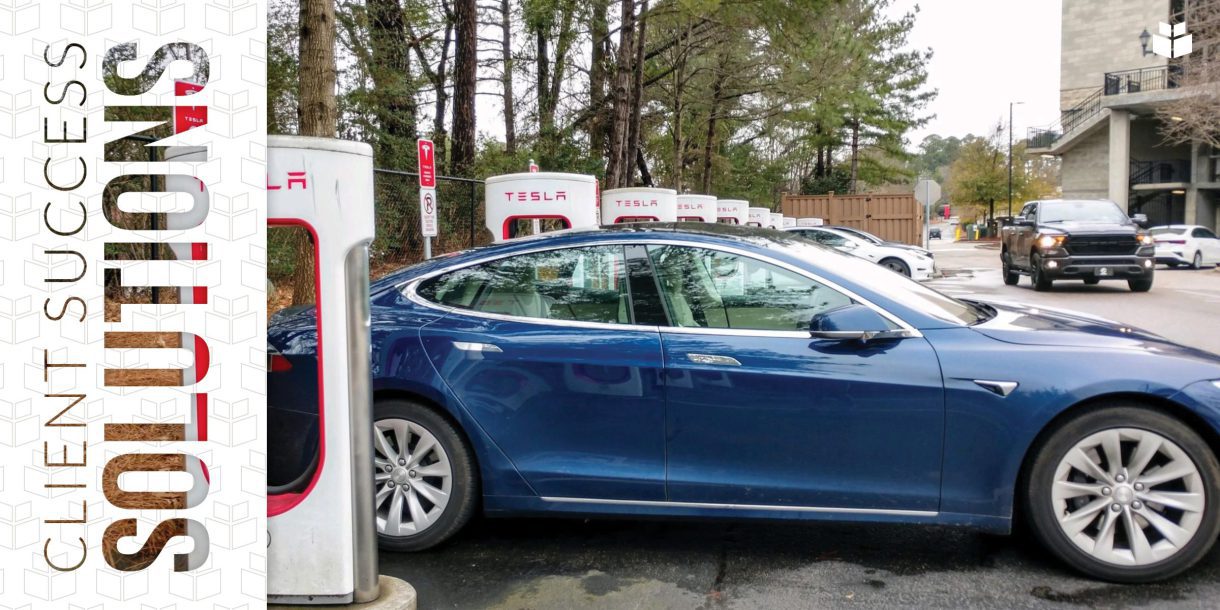
In 2018, Governor Roy Cooper signed an executive order as part of an effort toward transitioning to a clean energy economy. The order includes a goal of least 80,000 registered zero emission vehicles (ZEVs) in North Carolina by 2025. As part of the order, the North Carolina Department of Transportation (NCDOT), in coordination with NC Department of Environmental Quality (NCDEQ), will work toward developing a ZEV plan to meet the goals of the order. The plan includes fully electric and plug-in hybrid vehicles.
What does this all mean to N.C. residents, vehicle users and municipalities and counties? For one, a need for greater infrastructure will arise. According to the 2019 North Carolina ZEV Plan, which is a strategic plan for accelerating electric vehicle adoption in the state, access to affordable EVs and charging infrastructure can benefit vulnerable communities by providing additional transportation options, lowering household transportation costs, and improving local air quality.”
Incorporating electric vehicle-charging infrastructure primarily parking slots with charging stations in developments illustrates a community’s values, such as protecting the environment, says Meredith Gruber, PLA, AICP, WithersRavenel’s Director of Planning (Public).
It is a small way of communicating that value and also providing a convenience for citizens,she says.
Charging infrastructure has received increased attention because of N.C.’s $92 million share of the Volkswagen settlement, an agreement between the German automaker and the U.S. Department of Justice on behalf of the U.S. Environmental Protection Agency (EPA). Cooper designated NCDEQ to manage North Carolina’s share of the settlement.
According to the ZEV Plan, North Carolina already has more 1,440 EV charging stations but lacks comprehensive signage for directing residents to public stations.
Charging stations, primarily in urban centers across the state like the Triangle area, Triad, Charlotte and Asheville, are one of the most visible effects of the gradual increase in electric vehicles. Keeping this in mind, the 2019 ZEV Plan emphasizes the adoption of EV-ready building codes as a top priority for the state. One big reason, the plan says, is it is more expensive to retrofit existing buildings for EV accessibility and usage. Outfitting buildings with such parking spaces can be up to 65 percent less expensive than installing these features to the same specifications after full construction.
Gruber, whose team is working on planning updates across the state, echoes this view. When a community is working on a comprehensive plan whether it is a comprehensive land-use plan or a transportation plan thinking about the future infrastructure needs of electric vehicles is also something that should be included,she says.
If you are planning for new developments, it’s very easy,says Gruber. Retrofitting public places like libraries or town halls would require some extra work.”
Moreover, having plug-in, vehicle-charging infrastructure is becoming popular in residential developments because most people charge their electric vehicles at home, says Gruber. Especially with electrical connectivity and wiring involved, Unified Development Ordinances (UDOs) need to include information about this infrastructure to ensure proper permits are in place for residential charging stations.
The 2019 ZEV Plan emphasizes that North Carolina will need analyses of existing policies to identify specific changes to the building code and other policies that affect residential, commercial, industrial, and government buildings.
Gruber believes electric vehicles will grow exponentially in the next five years. Should a client move forward with adding charging infrastructure, We can help with site planning and design requirements as well as ordinance requirements,says Gruber, who sees the trend trickling out to smaller communities even as electric vehicle growth is mostly visible in major centers.
Thinking about the future?
WithersRavenel’s Planning team is ready to work with you on how best to incorporate zero emission vehicles infrastructure needs in existing and upcoming developments in your community. Contact Meredith Gruber at (919) 238-0431 or mgruber@withersravenel.com and let WithersRavenel help you embrace the future.
